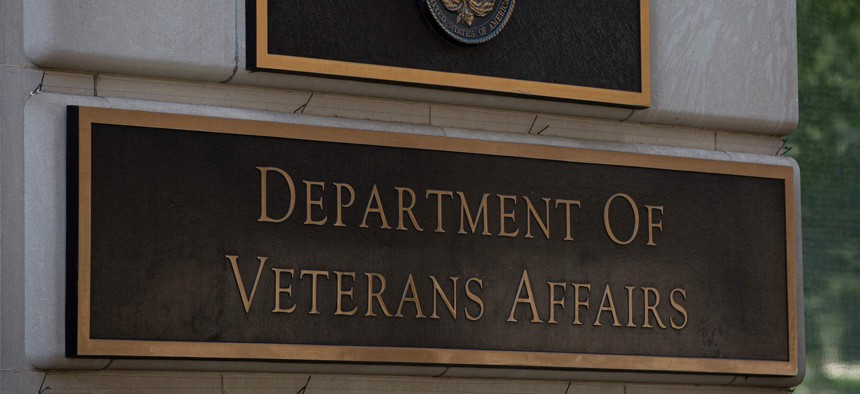VA to lean on automation, better IT to tackle wave of benefits claims

Alastair Pike/AFP via Getty Images
The component responsible for overseeing veterans’ benefits programs at the Department of Veterans Affairs believes that automation and modernized IT systems will enhance its processing of PACT Act-related claims.
The Veterans Benefits Administration believes that the use of automated tools and modernized information technology systems will help it reduce its claims backlog and enhance the efficiency of its claims processing moving forward, according to a report released by the Department of Veterans Affairs’ Office of Inspector General on Thursday.
The congressionally-mandated review analyzed the causes of VBA’s claims processing delays, the status of the department’s backlog and progress made on efforts to digitize paper-based personnel files.
Last year’s passage of the PACT Act — which expanded eligibility benefits for veterans exposed to burn pits and other toxic substances while on active duty — directed VA to create a plan for modernizing VBA’s IT systems in anticipation of the increase in claims, including describing how it would use automation “to increase the speed and accuracy of claims processing decisions.”
In its report, OIG said that VBA is expecting an increase in both “the claims inventory and the backlog during calendar year 2023” as a result of the PACT Act, and anticipates “that inventory and backlog will peak around September or October 2023, with approximately 962,000 claims in the overall inventory and a backlog of approximately 448,000 claims.” VBA considers claims to be backlogged if they are still pending for more than 125 days after being received by the agency.
OIG noted that VA’s PACT Act-required plan for modernizing VBA’s systems described how the department will use IT system modernization tools — including “smart search capabilities and machine learning/optical character recognition technologies” — and automation — including “automated claim intake and automated examination request” — to enhance the benefit claims process.
“VBA anticipates automation will improve claims processing efficiency by increasing the number of claims processed, shortening the time to make a decision, improving quality and reducing the number of unnecessary examinations,” the report said.
Prior to the release of OIG’s report, two House Veterans’ Affairs subcommittees held a joint hearing on Tuesday to discuss the five-year modernization plan that the department submitted to Congress earlier this year. The hearing focused, in large part, on VA’s ongoing efforts to modernize the Veterans Benefits Management System — or VBMS — which electronically tracks and stores veterans’ claims documents and related benefits information.
Leading Republicans on the subcommittees voiced support for VA’s enhanced use of automated tools within VBMS to speed up its benefits claims processing, but expressed concern that the ongoing modernization efforts would be too gradual to meet the expected tidal wave of PACT-related claims over the next year. OIG noted in its report that it is in the process of reviewing VBMS to determine its effectiveness.
In addition to modernizing IT-related systems to meet the influx of new claims, OIG said that VBA is hiring additional claims processors and previously worked to digitize eligible veterans’ personnel records before the department began processing PACT Act claims in January.
The report noted that VBA, in collaboration with the National Personnel Records Center, first began scanning military personnel records in August 2022 — the same month that President Joe Biden signed the PACT Act into law — and that “107,911 military personnel records had been sent for scanning” as of Jan. 23.
“According to VBA, all available military records for PACT Act–eligible veterans were digitized by March 31, 2023,” OIG said.






